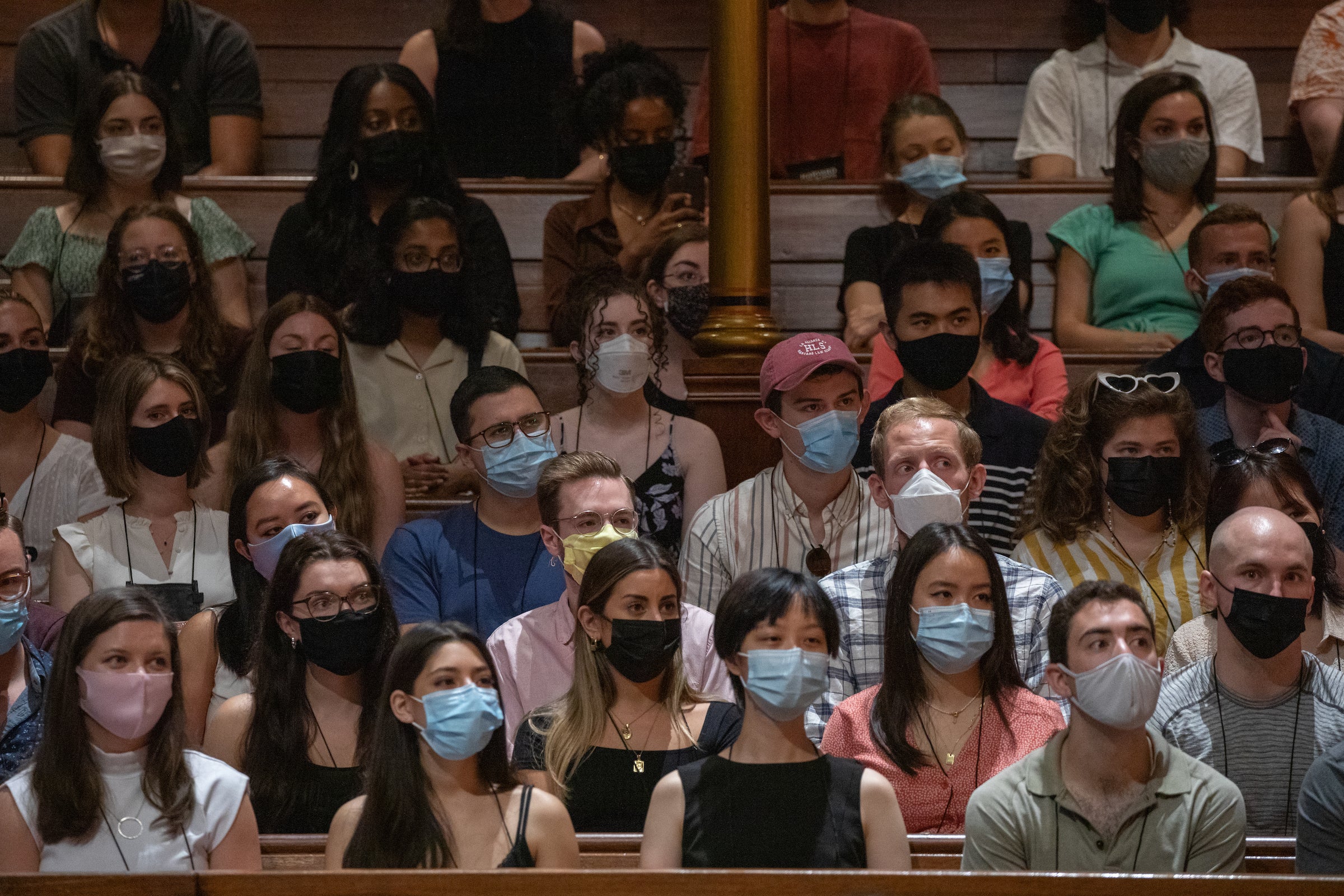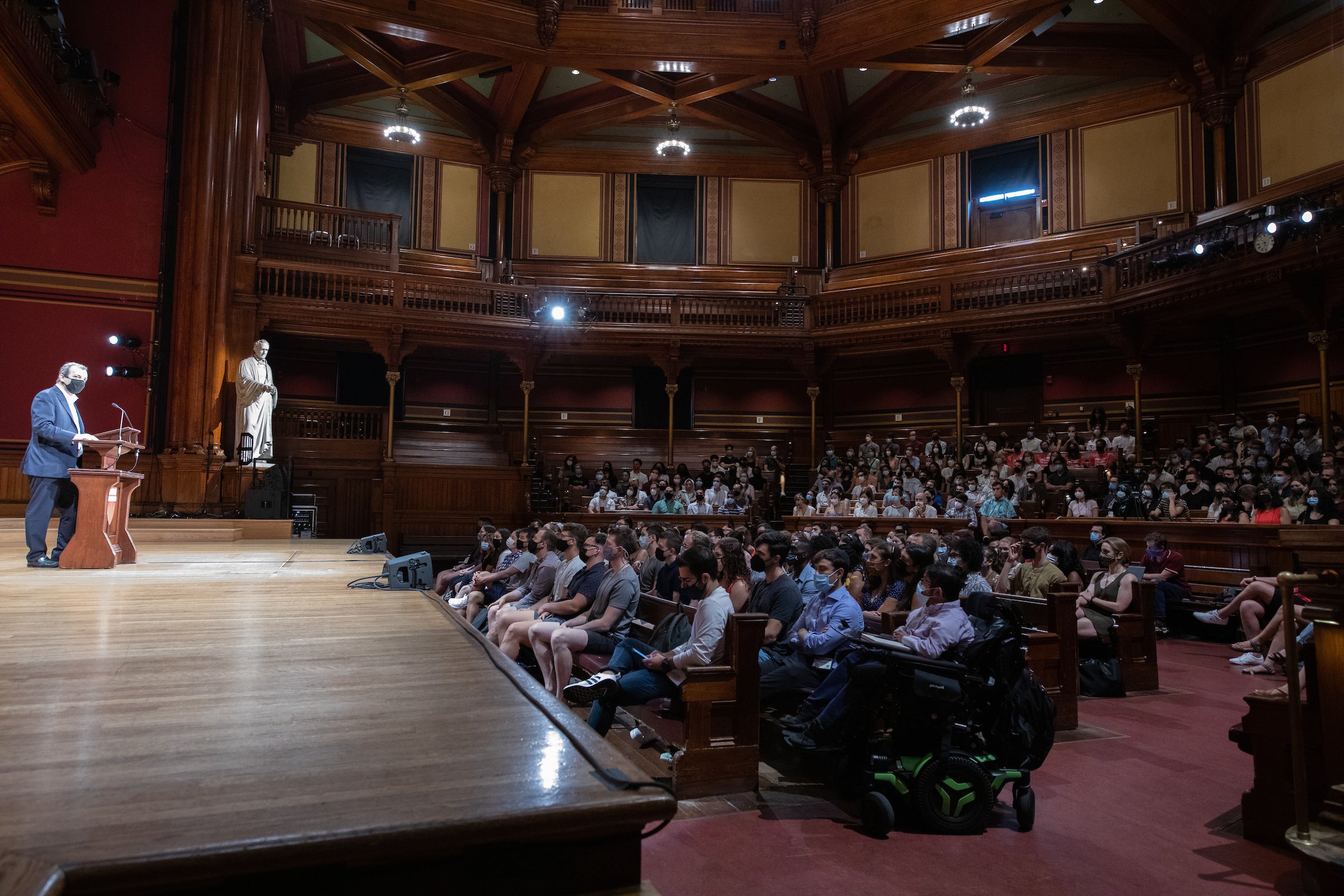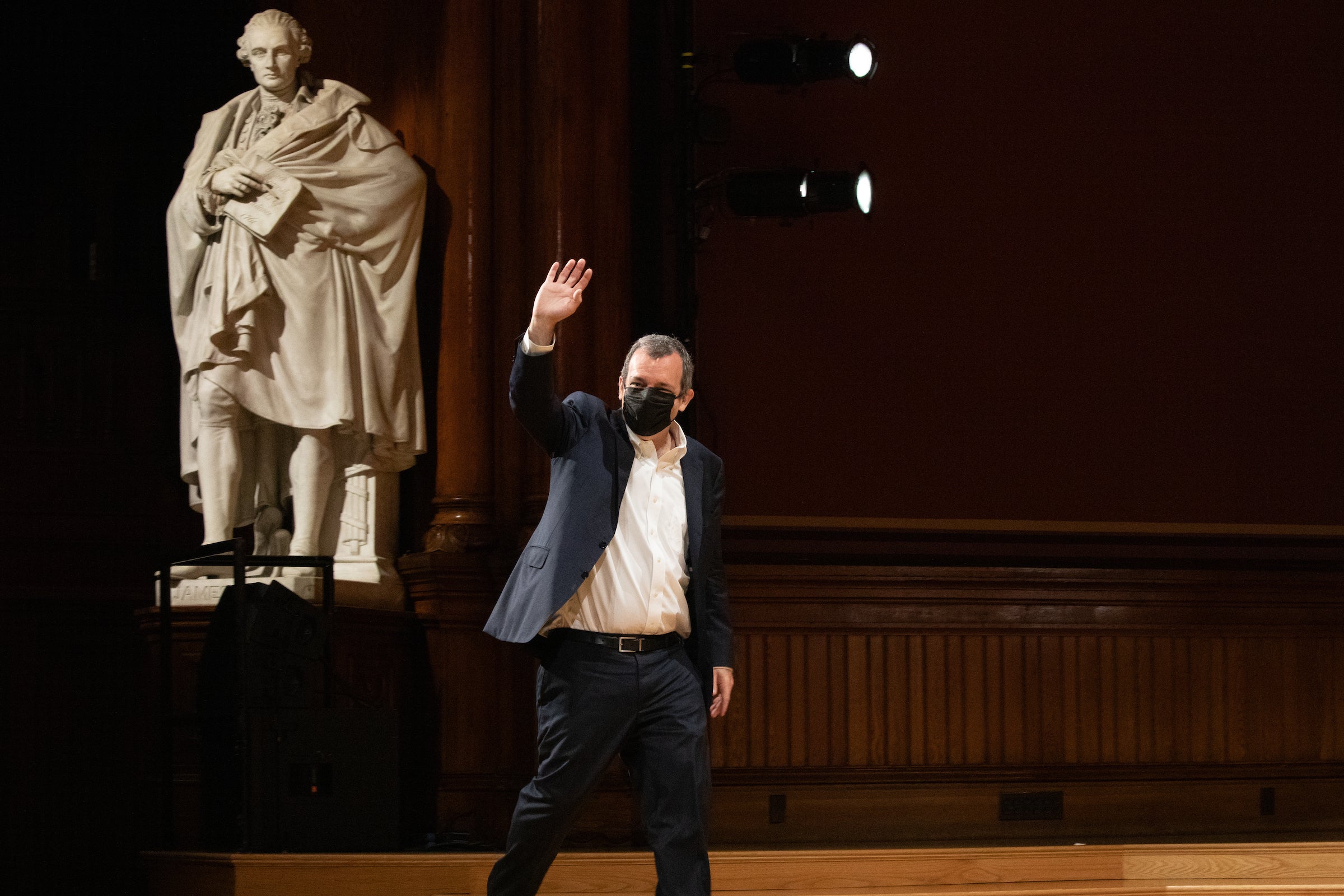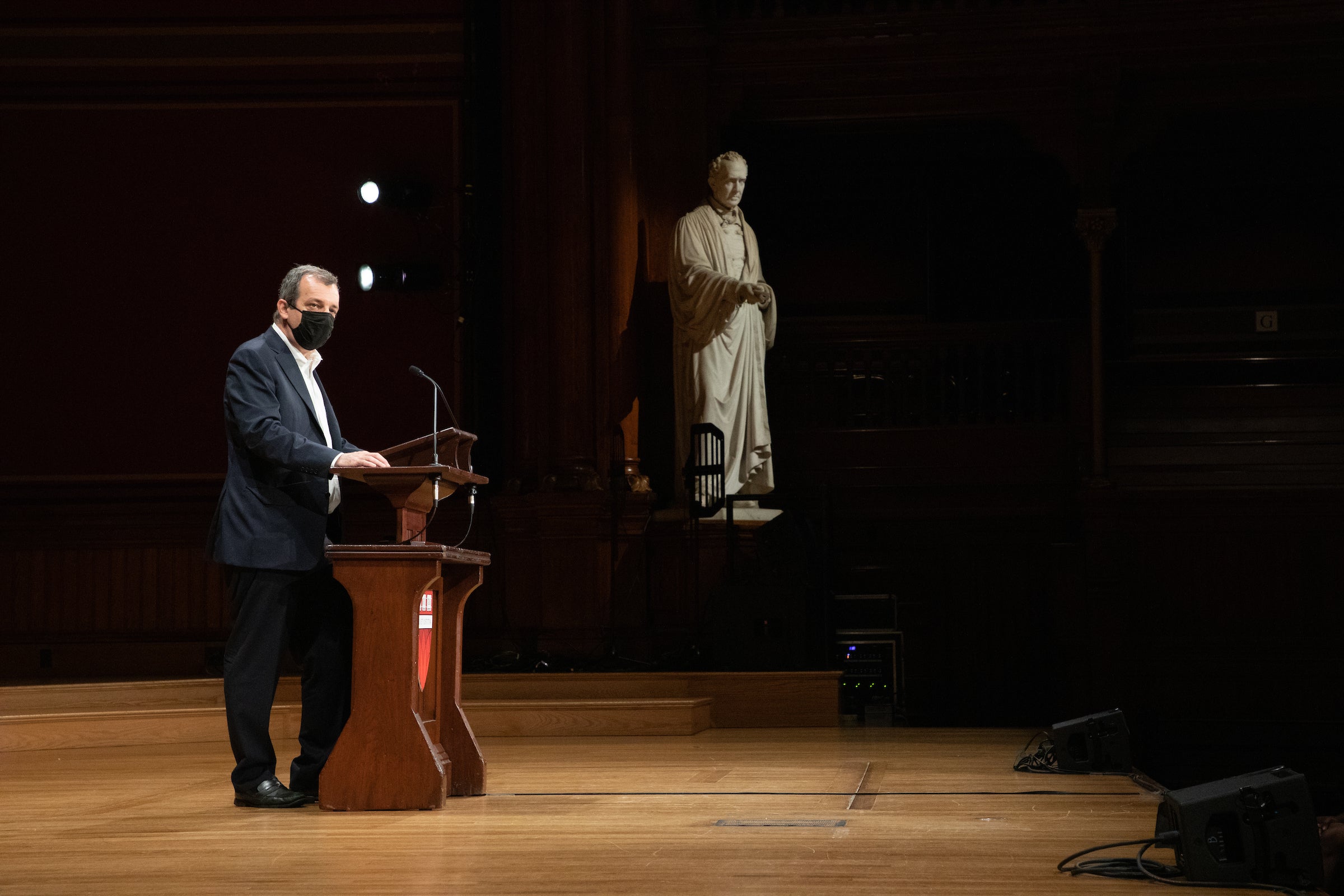In his welcome address to incoming Harvard Law students this year, Harvard Law School Dean John F. Manning ’85 made the case that lawyers and the legal profession will be central to resolving many of the challenges facing the nation and the world today.
“This past year and a half has again brought focus on grievous ills that have been with us too long and that can no longer wait for solutions—racism, inequality, public and private abuses of power, intolerance, threats to democracy, the list goes on,” said Manning, the Morgan and Helen Chu Dean and Professor of Law. “And the profession you have chosen is integral to solving all of these problems.”

In a beginning-of-the-year tradition that goes back decades, Manning spoke to more than 700 incoming J.D., LL.M., and S.J.D students in Harvard University’s historic Sanders Theatre on Aug. 26. As part of the school’s effort to support the community’s health amid the COVID-19 pandemic, and reduce the number of people in the room at any one time, the students who normally attend as one group were divided into two cohorts, which the dean addressed separately.
Manning explained that there are two reasons why the law is so critical today. “One is that these vital issues are at the epicenter of the lawyer’s work. The legal profession is dedicated to the rule of law, to equal justice under law, to due process, and constitutional democracy. Though we will not always agree, and may sometimes disagree sharply, about what exactly each of those vital concepts entails, our work is to use a lawyer’s tools to give substance to them, to give them life, and to make them real in the world and in people’s lives.”

The second, he said, is that being a lawyer is a superpower. “Our job is to think critically. We are taught to question everything, to cross-examine everyone. … Law school teaches you a kind of discipline, an ability to break any proposition or any problem into its component parts, to examine it, to understand it, and to put it back together again.”
Harvard Law School has produced leaders in nearly every field, Manning said. “Harvard Law School graduates are college presidents, international leaders, teachers, CEOs, heads of NGOs, government officials, judges, start-up entrepreneurs, tech innovators, writers, directors, producers,” he told the students. “What you learn here will empower you to do many, many things, to contribute in many, many ways.”
The dean also offered students several practical tips for success in law school, the legal profession, and life. First, Manning recounted how scared he, the first in his family to graduate from college or attend law school, was as a brand-new Harvard Law student, where it appeared everyone but him “had it all figured out.” The truth, as his mother explained to him, was that everyone around him was probably feeling as nervous as he, even though they weren’t showing it.
“After many years of life, I’ve learned that everyone is a little bit scared during a big transition like this,” Manning said.
The dean also urged students to “listen generously to others, especially those who disagree with you.” Why? Because, he explained, only by constructing the best version of the other side’s arguments “can you understand what arguments you have to answer” and “speak persuasively about the costs as well as the benefits of . . . your position.”

While it can be challenging to listen generously to people and points of view with which one sharply disagrees, Manning acknowledged, he told students that it will be necessary in order “to achieve the things you came here to do…to help bring about change to a world that badly needs it.”
Manning noted that the design of the school’s new shield was inspired in part by input from students, faculty, staff, and alumni, many of whom had shared their belief that “HLS proudly reflects many schools of thought, perspectives, and viewpoints, and it encourages challenging conversations, dissenting views, and robust discussions about problems that don’t have easy answers.” He asked the newest HLS students to please “take advantage of that community and that opportunity while you are here.”
Manning concluded by expressing gratitude for the way his Harvard Law School journey had enabled him to achieve things neither his parents nor grandparents could have conceived.
“And I’m very, very grateful to be here with you in person as you begin your journey,” he said. “I look forward to meeting you as the year unfolds and to watching with pride as you become the next generation of great Harvard lawyers and leaders. Congratulations and welcome to HLS!”
